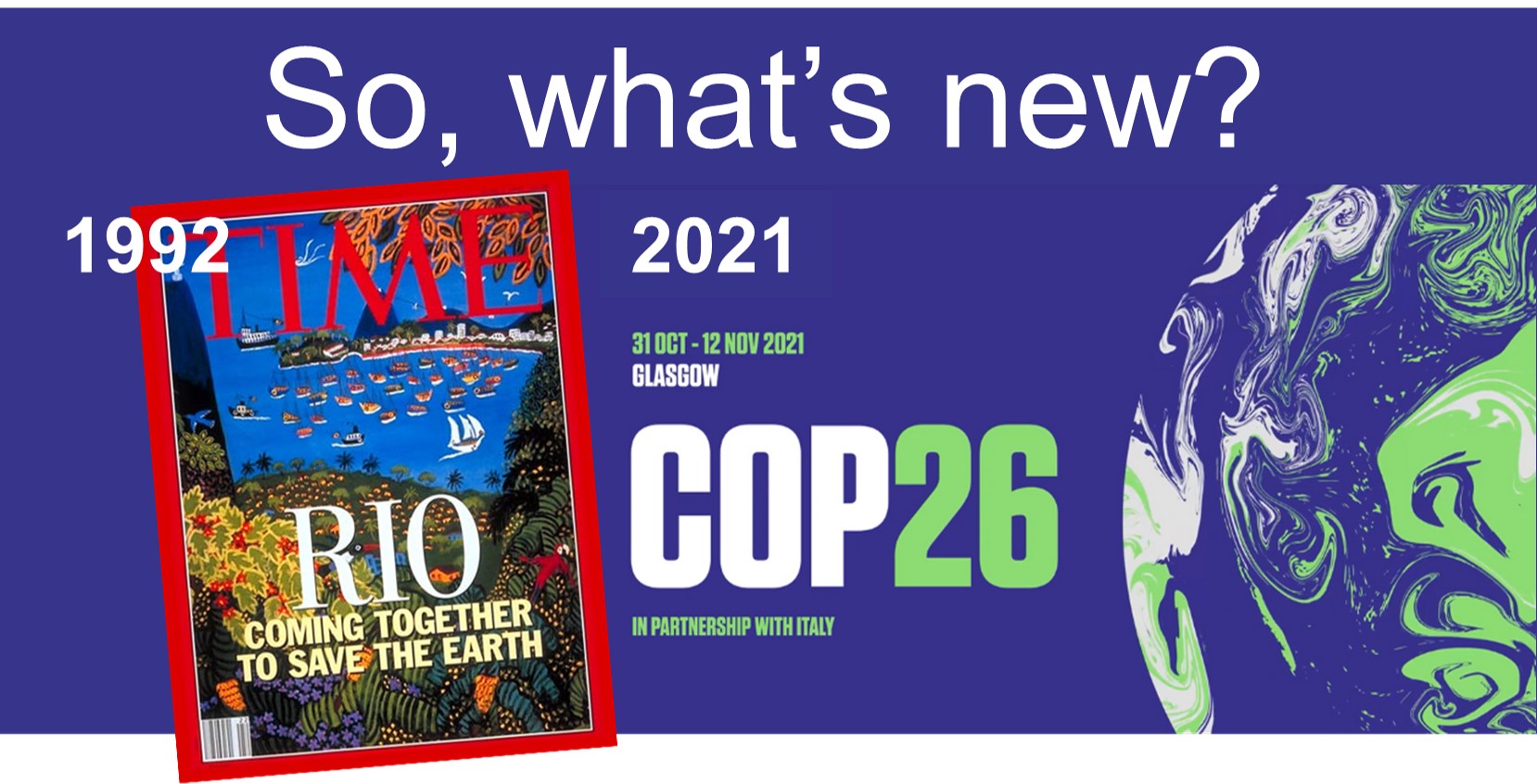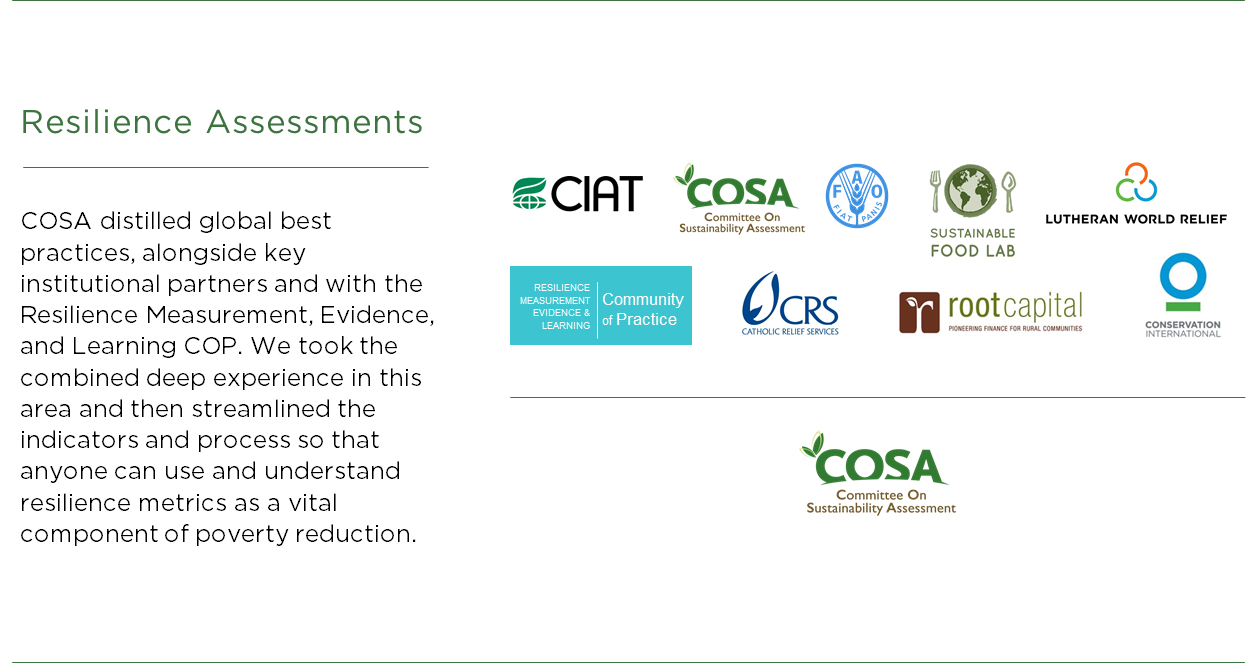
In light of this week’s COP, I was reflecting on how these global summits have changed and what, if anything, we have learned in three decades. We may finally be seeing smart action rather than the good intentions of the past, and there is one aspect that is essential to that change.
By Daniele Giovannucci.
The Rio Summit or Earth Summit in 1992 was perhaps the first high-profile global effort dedicated to sustainability and the environment. You scholars know that it also served as COP1. With its resurgence of NGOs and the UN as environmental stewards it offered a halcyon return to Gaia awareness that had been mostly lost in the 70’s and 80’s. But the result was mostly increased awareness and a focus on the emerging certification standards. The Rio+20 Summit two decades later in 2012 emerged with great expectations, despite the evidence of only modest achievements, because we saw a mainstreaming of sustainability to actively engage business. I recall that our four COSA presentations there drew not only governments and NGOs but also big companies. Surely, things will now shift, we thought. Instead, much of the world went only from good intentions to good commitments. Neither made much of a difference. Even today, some companies continue to make commitments without clear accountability.
We’ve recently seen several summits for impact investors that brought the financial industry to the table. Again most of the commitments were loose and the financial muscle has not really flexed to demand change and so it too has not yet made a difference or much measurable impact. There is, in fact, sharp and perhaps painful evidence, such as a 2021 article in the Harvard Business Review that despite all the commitments and the ESG reporting in recent years, not much has really changed. Except perhaps the awareness that climate change and sustainability are no longer marginal or “nice to have” issues.
The 2021 Food Summit was also well-attended and notably began to do something distinct. It began to mainstream the calls for improved and transparent data to drive real Monitoring, Evaluation, and Learning. This was something quite different from the usual summit outcomes of big plans and commitments but almost no accountability or transparency.
Now, in the latest summit (UNFCCC COP 26 in Nov 2021) something novel is happening. A number of the world’s largest companies – even many who resisted earlier efforts – are now pushing their governments to set stricter goals and enact regulations on factors related to climate change. Accountability may finally be coming to the fore. Credible and transparent data is critical for that.
We are starting to see the call for data applied to not just commitments but also the thorniest challenges we face such as resilience. COSA is pleased to join the UN’s International Fund for Agricultural Development at their COP Pavilion for their panel on “Investing in and monitoring resilience for small-scale producers and rural communities”.
Small-scale producers and rural poor families are already the most severely impacted by climate events. How can we support them in building their much-needed resilience capacities at scale if we hardly know how to measure them? This event, hosted by IFAD, will discuss concrete tools and approaches to help unpack and operationalize the complex concept of resilience in a specific rural context. This includes systematically analyzing risks and vulnerabilities and designing concrete interventions as well as preparing context specific resilience scorecards and indexes.
Learning how to credibly and accurately measure resilience is going to be an enormous task as climate-induced change and a range of factors such as COVID and deep poverty combine to usher in new levels of disaster and disruption. Having this vital skill can make the difference in how communities steward their progress and in how companies and policymakers target their resources to increase resilience. COSA has worked with some of the leading institutions in the field to develop globally reliable indicators (see Figure below) and testing them in the field.

IFAD has recently developed a Resilience Design and Monitoring Tool (RDMT) that reflects some of the work advanced by COSA and other global agencies that distilled the indicators to understand resilience in pragmatic and low-cost ways. The working group tested tools in locations as diverse as Kenya, Nicaragua, and Peru, and Syria. You can explore the topic in recent publications such as Resilience Measurement and Conceptual Frameworks: A Review of the Literature and Coffee in crisis offers a lesson in resilience.





